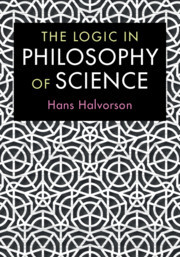Description
The Logic in Philosophy of Science
Author: Halvorson Hans
Reconsiders the role of formal logic in the analytic approach to philosophy, using cutting-edge mathematical techniques to elucidate twentieth-century debates.
Language: English
Subject for The Logic in Philosophy of Science:
Approximative price 39.35 €
In Print (Delivery period: 14 days).
Add to cart
The Logic in Philosophy of Science
Publication date: 07-2019
304 p. · 17.4x24.6 cm · Paperback
Publication date: 07-2019
304 p. · 17.4x24.6 cm · Paperback
Approximative price 70.09 €
In Print (Delivery period: 14 days).
Add to cart
The Logic in Philosophy of Science
Publication date: 07-2019
304 p. · 17.8x25.4 cm · Hardback
Publication date: 07-2019
304 p. · 17.8x25.4 cm · Hardback
Description
/li>Contents
/li>Biography
/li>
Major figures of twentieth-century philosophy were enthralled by the revolution in formal logic, and many of their arguments are based on novel mathematical discoveries. Hilary Putnam claimed that the Löwenheim-Skølem theorem refutes the existence of an objective, observer-independent world; Bas van Fraassen claimed that arguments against empiricism in philosophy of science are ineffective against a semantic approach to scientific theories; W. V. O. Quine claimed that the distinction between analytic and synthetic truths is trivialized by the fact that any theory can be reduced to one in which all truths are analytic. This book dissects these and other arguments through in-depth investigation of the mathematical facts undergirding them. It presents a systematic, mathematically rigorous account of the key notions arising from such debates, including theory, equivalence, translation, reduction, and model. The result is a far-reaching reconceptualization of the role of formal methods in answering philosophical questions.
Introduction: 1. Invitation to metatheory; 2. The category of sets; 3. The category of propositional theories; 4. Syntactic metalogic; 5. Syntactic metalogic redux; 6. Semantic metalogic; 7. Semantic metalogic redux; 8. From metatheory to philosophy.
Hans Halvorson is Stuart Professor of Philosophy at Princeton University, New Jersey. He has written extensively on philosophical issues in physics and the other sciences, on mathematical logic, and on the relationship between science and religion.
© 2024 LAVOISIER S.A.S.



